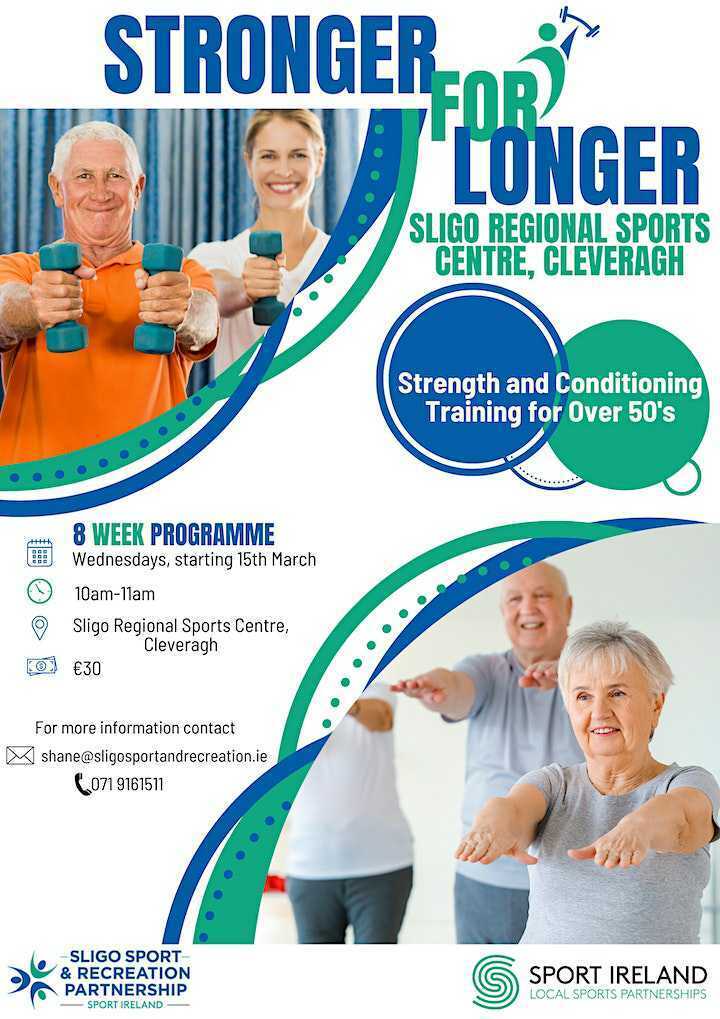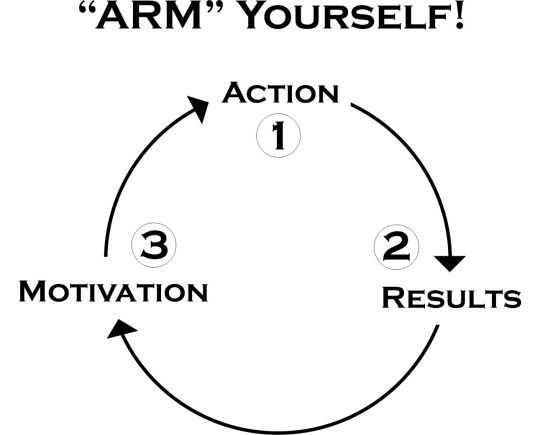Stronger For Longer
I applaud the intention behind the initiative outlined in the picture below, which recognises the importance of strength as we age, but so disappointing to see the little dinky dumbbells used there - probably get more stimulus on a Friday night curling some pints to your mouth, over what they're intending to do with those.

The current guidelines for adults are:
- 150 to 300 minutes of moderate-intensity aerobic activity (brisk walking) OR 75 to 150 minutes of vigorous aerobic activity (running or more intense conditioning methods)
- Two sessions of full-body strength training
And, regardless of age or gender, we should all strength train in the same manner. Based on an individual's circumstances, consideration may be required on certain movements and how they ramp up, but the principle of "progressive overload" should be followed. Start with a manageable weight and then increase reps, weight, or both over time. This will quickly add up for most people, surprising them with what they are capable of - e.g. squatting and deadlifting your bodyweight in 12wks is within the grasp of most people.
Grip strength (correlating with overall strength) is a key mortality indicator, and the best way to retain or increase strength as we age is resistance training - and "training" is the keyword here, as "exercise" will give you a short term boost, but training is something you keep building upon, week after week.
A lifestyle without resistance training can result in 1st (14lbs) of lean mass lost every 20yrs, so even if you look after yourself reasonably well and weigh the same at 80 as you do at 20, you've likely replaced 3st of lean mass with fat - and that loss of muscle is what brings the word "frail" into play as we age, with the associated compromises on the quality of life.
Here's someone who, like me, is within this targeted age group - he's 17yrs older, but he's also got 100kg on my deadlift (beltless at that):
Or, this 75 year old lady deadlifting 200lbs (90.7kg/14.2st). She's not messing around with that quick pull, and top swagger game too!:
There are countless other examples like this. The mindset that we should take it easier as we age is the prevalent one shared by society, and even with the well-intentioned fitness/health professionals here. The reality is quite the opposite and we need to be more active than when we were younger and could get away with it. Not pushing so hard that you kill yourself in the gym, but at a level where the resistance training is challenging and adheres to progressive overload, and that can make a huge difference to your quality of life - short and long term.
Right now, I'm already more than strong enough for the rigours of daily life. So why still train 3/4 times a week attempting to get stronger still? Well, there may come a time when adding strength won't be possible, so the battle then becomes maintaining it or slowing the loss of it. The more you have, the more time you have it for - so, the sooner you start paying into your strength-pension pot the more you can dip into it later when you need it most.
And, it's never too late to start. The Beginner Perscription from Barbell Medicine is an excellent free program.
Conditioning also plays a critical role. An often overlooked and under-appreciated exercise is simple walking. A brisk 30 min walk 5 times a week can make a huge difference. Along the same lines but more challenging is rucking. Also, high-rep weight training can combine both strength and cardio.
For anyone that's cautious to start because of their age or current physical well being then please remember that we ease into this and we don't take on more than we can handle - but, we need to push a little, and it's these little nudges that add up over time. There is no rush, no deadline, instead it's a lifetime commitment and with a big-picture view these small improvements are all that's required.
So, I'd suggest recording whatever metrics you can and chart that progress over time. That could be your resting heart-rate, your blood pressure, your body-fat percentage, your waist circumference, the weight on the bar, the number of reps, etc. Gather this data and over time the progress will become apparent. Now, on a day-to-day basis, they could fluctuate wildly and sometimes it'll feel like you're fighting a losing the battle, but it's crucial to shrug it off and maintain focus as those trendlines over time will point in the right direction.
Motivation comes from results, and results come from action, and motivation feeds action - the trick is finding a routine that keeps that cycle going, and analyzing your progress in this manner can make all the difference.
